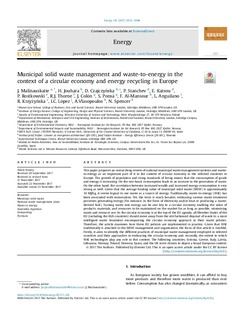| dc.contributor.author | Malinauskaite, J. | |
| dc.contributor.author | Jouhara, H. | |
| dc.contributor.author | Czajczynska, D. | |
| dc.contributor.author | Stanchev, P. | |
| dc.contributor.author | Katsou, E. | |
| dc.contributor.author | Rostkowski, Pawel Marian | |
| dc.contributor.author | Thorne, Rebecca Jayne | |
| dc.contributor.author | Colón, J. | |
| dc.contributor.author | Ponsá, S. | |
| dc.contributor.author | Al-Mansour, F. | |
| dc.contributor.author | Anguilano, L. | |
| dc.contributor.author | Krzyzynska, R. | |
| dc.contributor.author | López, I. C. | |
| dc.contributor.author | Viasopoulos, A. | |
| dc.contributor.author | Spencer, N. | |
| dc.date.accessioned | 2017-12-19T10:09:31Z | |
| dc.date.available | 2017-12-19T10:09:31Z | |
| dc.date.created | 2017-11-27T13:32:08Z | |
| dc.date.issued | 2017 | |
| dc.identifier.citation | Malinauskaite, J., Jouhara, H., Czajczynska, D., Stanchev, P., Katsou, E., Rostkowski, P., Thorne, R. J., Colón, J., Ponsá, S., Al-Mansour, F., Anguilano, L., Krzyzynska, R., López, I. C., Vlasopoulos, A., & Spencer, N. (2017). Municipal solid waste management and waste-to-energy in the context of a circular economy and energy recycling in Europe. Energy, 141, 2013-2044. doi:10.1016/j.energy.2017.11.128 | nb_NO |
| dc.identifier.issn | 0360-5442 | |
| dc.identifier.uri | http://hdl.handle.net/11250/2472788 | |
| dc.description.abstract | This paper proposes an overarching review of national municipal waste management systems and waste-to-energy as an important part of it in the context of circular economy in the selected countries in Europe. The growth of population and rising standards of living means that the consumption of goods and energy is increasing. On the one hand, consumption leads to an increase in the generation of waste. On the other hand, the correlation between increased wealth and increased energy consumption is very strong as well. Given that the average heating value of municipal solid waste (MSW) is approximately 10 MJ/kg, it seems logical to use waste as a source of energy. Traditionally, waste-to-energy (WtE) has been associated with incineration. Yet, the term is much broader, embracing various waste treatment processes generating energy (for instance, in the form of electricity and/or heat or producing a waste-derived fuel). Turning waste into energy can be one key to a circular economy enabling the value of products, materials, and resources to be maintained on the market for as long as possible, minimising waste and resource use. As the circular economy is at the top of the EU agenda, all Member States of the EU (including the EEA countries) should move away from the old-fashioned disposal of waste to a more intelligent waste treatment encompassing the circular economy approach in their waste policies. Therefore, the article examines how these EU policies are implemented in practice. Given that WtE traditionally is attached to the MSW management and organisation, the focus of this article is twofold. Firstly, it aims to identify the different practices of municipal waste management employed in selected countries and their approaches in embracing the circular economy and, secondly, the extent to which WtE technologies play any role in this context. The following countries, Estonia, Greece, Italy, Latvia, Lithuania, Norway, Poland, Slovenia, Spain, and the UK were chosen to depict a broad European context. | |
| dc.language.iso | eng | nb_NO |
| dc.rights | Navngivelse 4.0 Internasjonal | * |
| dc.rights.uri | http://creativecommons.org/licenses/by/4.0/deed.no | * |
| dc.title | Municipal solid waste management and waste-to-energy in the context of a circular economy and energy recycling in Europe | nb_NO |
| dc.type | Journal article | nb_NO |
| dc.type | Peer reviewed | nb_NO |
| dc.description.version | publishedVersion | nb_NO |
| dc.rights.holder | © 2017 The Authors. | nb_NO |
| dc.source.pagenumber | 2013-2044 | nb_NO |
| dc.source.volume | 141 | nb_NO |
| dc.source.journal | Energy | nb_NO |
| dc.identifier.doi | 10.1016/j.energy.2017.11.128 | |
| dc.identifier.cristin | 1518897 | |
| cristin.unitcode | 7460,60,0,0 | |
| cristin.unitcode | 7460,55,0,0 | |
| cristin.unitname | Miljøkjemi | |
| cristin.unitname | Miljøeffekter og bærekraft | |
| cristin.ispublished | false | |
| cristin.fulltext | postprint | |
| cristin.fulltext | original | |
| cristin.qualitycode | 2 | |

